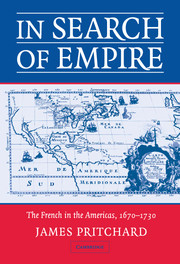Book contents
- Frontmatter
- Contents
- List of Illustrations
- List of Maps and Graphs
- List of Tables
- Preface
- Dates, Weights, Measures, and Currency
- List of Abbreviations
- Part I Colonies Formed
- 1 Colonial Populations
- 2 Settlements and Societies
- 3 Production
- 4 Trade and Exchange
- 5 Government and Politics
- Part 2 Colonies Defended
- Appendixes
- Bibliography
- Index
2 - Settlements and Societies
Published online by Cambridge University Press: 05 June 2012
- Frontmatter
- Contents
- List of Illustrations
- List of Maps and Graphs
- List of Tables
- Preface
- Dates, Weights, Measures, and Currency
- List of Abbreviations
- Part I Colonies Formed
- 1 Colonial Populations
- 2 Settlements and Societies
- 3 Production
- 4 Trade and Exchange
- 5 Government and Politics
- Part 2 Colonies Defended
- Appendixes
- Bibliography
- Index
Summary
INTRODUCTION
Colonial societies emerged spontaneously from individual seeds scattered over a wide variety of environmental conditions, mutating into something new rather than evolving from old French roots carefully transplanted into new environments. One thing was clear by 1670. People, both slave and free, were constructing the settlements and fashioning the societies emerging in the colonies. French colonial historiography has long been bedeviled by the opposite proposition. Whether concerning Canada or Saint-Domingue, historians have viewed the French state as the primary agent in the development of French colonies. Individual colonists and enterprises were essential to any colony's growth to be sure, but the French government, it is often claimed, was the key to that development. The reason for the predominance of this view is interesting but need not concern us. Suffice it to assert that material factors, social institutions, and economies far more than metropolitan government erected French colonial structures and shaped their contours. Though social institutions can be traced to France, their colonial forms often became something else. The population and social makeup of each colony was like nothing found in France. All French colonial societies were multiethnic and multicultural, but each was unique. The product of economies of production and exchange, colonial social relations remained largely in a state of flux every where in the French Americas between 1670 and 1730.
- Type
- Chapter
- Information
- In Search of EmpireThe French in the Americas, 1670–1730, pp. 72 - 122Publisher: Cambridge University PressPrint publication year: 2004



